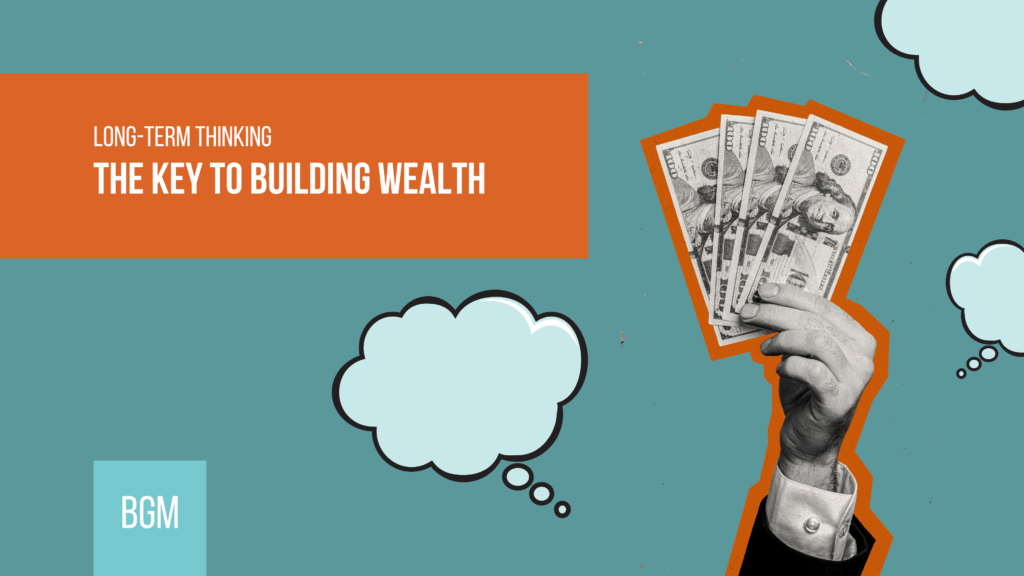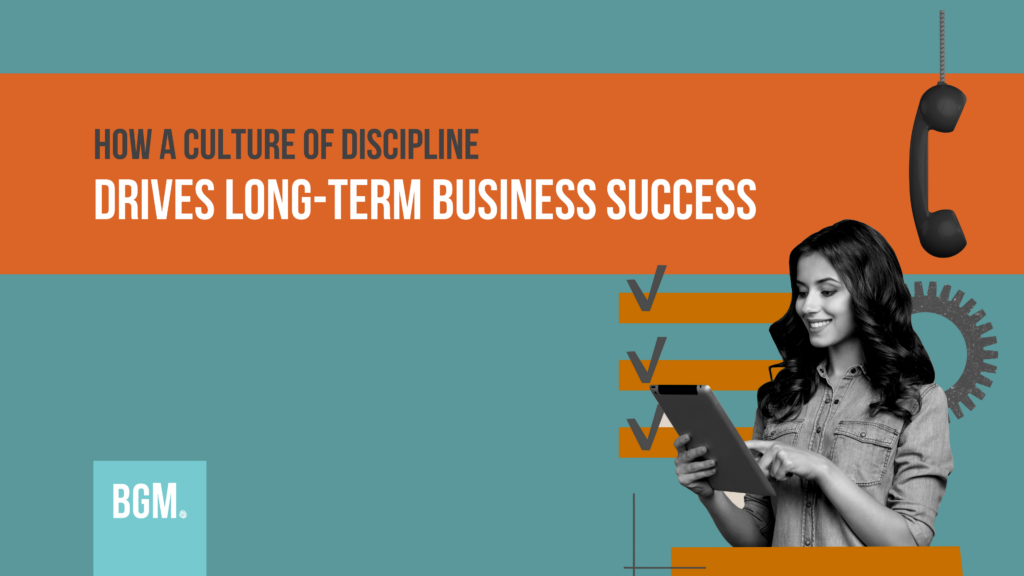Welcome to the latest edition of Business Life, where we focus on financial decision-making and long-term thinking. It’s easy to be pulled into short-term pressures. Whether it’s the temptation to make fast money, the fear triggered by market dips, or the pressure to match someone else’s highlight reel, short-term thinking is everywhere.
But here’s the truth, sustainable wealth is not built in weeks or even months, it’s built over decades. Let’s explore why a long-term mindset is essential, the challenges that make it difficult to practise, and how to build the patience and discipline required for real financial growth.
Why Long-Term Thinking Matters In Financial Success
Short-term thinking chases results. Long-term thinking builds them. In business and life, focusing only on what’s right in front of you can lead to reactive decisions, often at the expense of future opportunities. Here’s why long-term thinking is critical to building financial stability and wealth.
Compounding needs time – The earlier you start saving, investing, or reinvesting, the greater the impact of compound growth. It’s not the size of your investment that creates wealth, it’s the duration and consistency.
It protects you from emotional decisions – When markets drop or unexpected expenses hit, long-term thinkers stay the course. Short-term thinkers panic, pull out, or pivot too soon, often losing ground in the process.
It aligns your daily actions with your future goals – Every decision you make from hiring to marketing, to spending is filtered through a long-term lens. That leads to better judgment and stronger results over time.
It helps you build assets, not just income – With a long-term mindset, you prioritise systems, intellectual property, investments, and relationships, all of which compound value over time.
In short, long-term thinking shifts you from survival to strategy.
Common Challenges Of Adopting A Long-Term Mindset
Despite its benefits, long-term thinking isn’t easy. We live in a world that rewards immediacy, instant likes, overnight success stories, and short-term gains. Here are the barriers that often hold people back.
Impatience
Waiting for results can be frustrating, especially when you’re putting in consistent effort. But wealth isn’t built in dramatic moments, it’s built in small, repeated decisions that stack up over time.
Fear Of Missing Out (FOMO)
Seeing others succeed quickly can trigger comparison and impulsive decisions. You might feel pressure to jump into trending investments, change your pricing strategy overnight, or pursue opportunities that don’t align with your long-term vision.
Lack Of Clear Goals
If you don’t have a long-term vision, it’s difficult to make strategic decisions in the present. Without a clear destination, every new opportunity feels like the right one.
Inconsistent Habits
Long-term results come from consistent action, not occasional bursts. If your financial habits aren’t stable (e.g. saving irregularly, reacting emotionally to money decisions), you’ll find it hard to stay the course.
Discomfort With Delayed Gratification
Wealth builders delay gratification. They reinvest profits instead of spending them. They choose long-term assets over quick wins. That mindset requires discipline, especially in the face of lifestyle inflation or short-term temptations.
How To Strengthen Your Long-Term Thinking
Just like a muscle, long-term thinking can be trained. Here’s how to build the mindset that supports financial and business growth.
Set Clear Financial Goals
Think 10 years ahead. What kind of life do you want? What kind of business do you want to run? Set revenue, wealth, and freedom goals that serve as your North Star.
Break The Journey Into Milestones
Long-term doesn’t mean vague. Define milestones for 1 year, 3 years, and 5 years. This gives you direction and motivation while still reinforcing your bigger vision.
Automate Where Possible
Automate savings, superannuation contributions, reinvestment percentages, and even customer nurture campaigns. Automation protects long-term strategy from short-term emotions.
Track What Compounds
Start measuring things that grow over time.
- Lifetime value of a customer
- Monthly recurring revenue
- Net worth or retained earnings
- Return on reinvested profit
Tracking these helps you see progress and stay committed.
Reduce Exposure To Noise
Limit exposure to financial news, social media comparison, or the latest economic panic. Long-term thinkers don’t ignore information, but they stay focused on what they can control.
Think Like A Builder, Not A Gambler
Would you rather have one good quarter or a business that thrives for decades? Would you rather have a viral campaign or a customer base that keeps coming back? Long-term thinkers build infrastructure, not hype.
Short-Term Action, Long-Term Vision
Building wealth personally or in business requires a different mindset than chasing results. It means being willing to delay rewards, stay disciplined, and focus on what truly compounds over time.
Long-term thinking doesn’t mean doing nothing in the present. It means making every short-term decision with the future in mind.
Ask yourself
- Am I building something that will last?
- Am I solving for today or investing in tomorrow?
- Am I focused on outcomes or optics?
When you start asking those questions regularly, your decision-making changes, and so do your results.
Thank you for being a part of the Business Life community. If there’s a topic you’d like us to explore in a future newsletter, we’d love to hear from you. We’re here to help you grow steadily, sustainably, and with clarity.
Live with purpose,
Kristian Livolsi and the Business Growth Mindset Team




